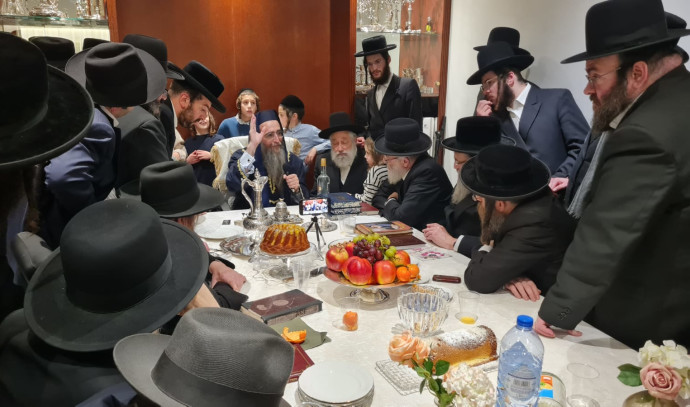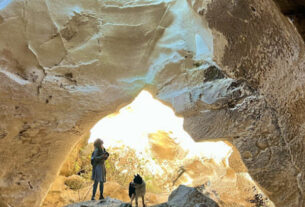In the vibrant city of Antwerp, Belgium, two contrasting series, Rough Diamonds and Shalom All! (Shalom Allemaal! in Flemish), pull back the curtain on the city’s Orthodox Jewish community, offering viewers an intimate view of their world. Despite sharing a common subject, the shows’ approaches and execution greatly differ, a divergence grounded in their distinct genres; Rough Diamonds is a work of fiction while Shalom All! is a documentary series.
Antwerp, a bustling Belgian port city, is renowned not only for its diamond industry but also for its substantial Jewish community. It is home to approximately 20,000 Jews, making it one of the most significant Jewish populations in Europe. The Jewish community’s roots in Antwerp trace back to the late 19th and early 20th centuries, with many seeking refuge here during the World Wars. Today, nearly 90% of the Jewish population in Antwerp identify as Orthodox, most of whom are Hasidic. This is unique since Orthodox Jews constitute a smaller fraction of the global Jewish population.
Netflix’s latest series, Rough Diamonds, delves into the world of Belgium’s diamond trade, shedding light on the challenges faced by one of the industry’s most influential families. Set against a backdrop of sparkling diamonds and wealth, a more ominous narrative emerges – one marked by family discord, loss, and a struggle for survival. Noah, a man who left his Hasidic roots for the allure of London, is drawn back to Antwerp following his younger brother’s tragic suicide. Confronted with a family on the brink of collapse after a disastrous deal, he steps in, navigating the murky underworld of the diamond industry to rescue his family from devastation.
Portrayal of Antwerp’s Orthodox Jewish community
In contrast, Diederik Van den Abeele’s acclaimed series, Shalom All!, presents a heartening and genuine portrayal of Antwerp’s Orthodox Jewish community. After a thorough exploration of this vibrant community’s lives, traditions, and beliefs, Van den Abeele has woven a unique narrative that resonates deeply with viewers.
Van den Abeele, a local non-Jewish journalist who became a movie producer, shared in a recent interview with The Jerusalem Post, “I’ve always been intrigued by Antwerp’s Orthodox Jewish community. Their way of life, their traditions were shrouded in mystery for the average Belgian. This knowledge gap inspired me to create Shalom All! to bridge this divide and foster meaningful dialogue between Jews and non-Jews.”
The ten-part series delves into the intimate details of Orthodox Jewish life in Antwerp. “I aimed to highlight all aspects of their life – from daily routines, weddings, and funerals to their religious observances like Yom Kippur (Day of Atonement) and Rosh Hashanah (Jewish New Year). I was privileged to film during Shabbat (Sabbath), usually off-limits to the media. If probably has never been done before, definitely not in Belgium. This opportunity enabled me to present an authentic depiction of their customs and practices,” Van den Abeele explained.
He went on to discuss the series’ platform: “The series airs on a national television station, Play4. Despite being one of the three national stations in Belgium, Play4 is smaller. However, its influence is considerable,” Van den Abeele highlighted. Indeed, Shalom All! attracted extraordinary viewership for the comparatively smaller station. Van den Abeele stated, “The first episode was watched by 800,000 Flemish people, an impressive figure considering there are about 6 million Flemish speakers in Belgium. The remaining episodes consistently attracted between 600,000 to 700,000 viewers, a remarkable achievement given the size of our target audience.”
These numbers underscore a phenomenal success, with a market share wavering between 20% to 25%. As Van den Abeele pointed out, “This means one in four viewers tuned into Shalom All!, a testament to the show’s broad appeal and the public’s eagerness to better understand their Jewish neighbors.” The scale of viewership and the show’s impact extended beyond mere numbers, signifying bridges being built, dialogues initiated, and mutual respect nurtured.
Gaining the Orthodox Jewish community’s trust was understandably challenging for Van den Abeele. “There was inherent suspicion towards the media, a sentiment rooted in their historical experiences of discrimination and persecution,” he confessed. Nonetheless, his persistent efforts and sincere intent to shed light on the community’s life eventually prevailed. He managed to build relationships, attend religious services, and even film in synagogues.
Speaking on the series’ impact, Van den Abeele expressed pride, “The series has been widely appreciated, not only by the broader Belgian audience but also within the Jewish community. Many have expressed gratitude for the accurate portrayal of their lives.”
The series has undoubtedly promoted a positive shift in perceptions of the Orthodox Jewish community in Antwerp. The relationship between Jewish and non-Jewish communities has significantly improved, characterized by increased curiosity, friendliness, and open dialogue. Van den Abeele reflected, “Before the series aired, there was a clear divide between Jews and non-Jews in Antwerp. Now, I see progress toward better understanding and mutual respect. This is precisely what I had hoped to achieve.”
Van den Abeele mentioned series like Shtisel and Unorthodox, which have gained international attention while discussing media portrayal of Orthodox Judaism. Though some Orthodox Jews might not resonate with all portrayals, Van den Abeele was gratified that Shalom All! was well-received by the Orthodox community in Antwerp, helping to dispel stereotypes and foster understanding.
In his concluding thoughts, Van den Abeele shared, “Through Shalom All!, we’ve brought the unknown into living rooms, fostered understanding, dispelled misconceptions. I genuinely believe that our world can improve through the power of storytelling. Our series proves that as we begin to understand each other’s lives and beliefs, we move toward more harmonious coexistence. It’s not about blurring the lines that divide us, but acknowledging and respecting those differences.” With that powerful sentiment, Van den Abeele continues his quest to bridge cultural gaps and spark meaningful conversations through his impactful storytelling.


